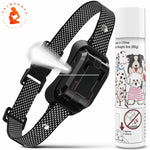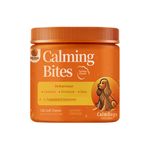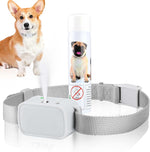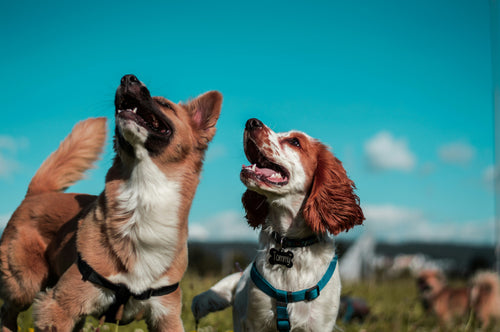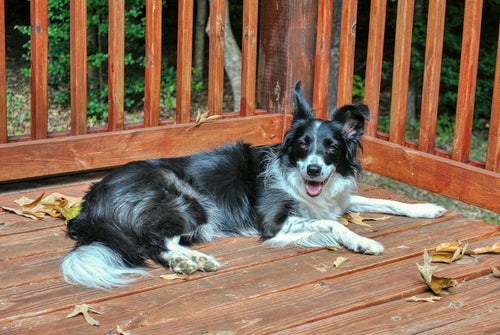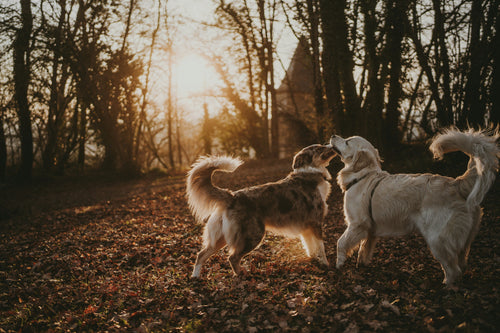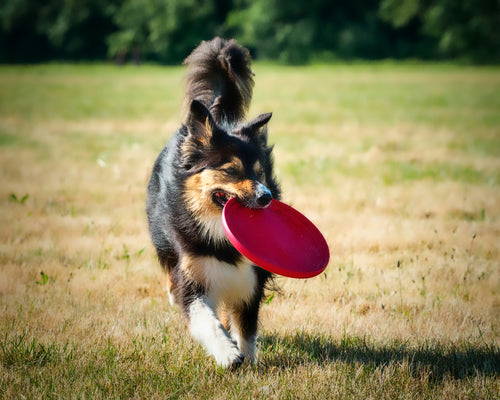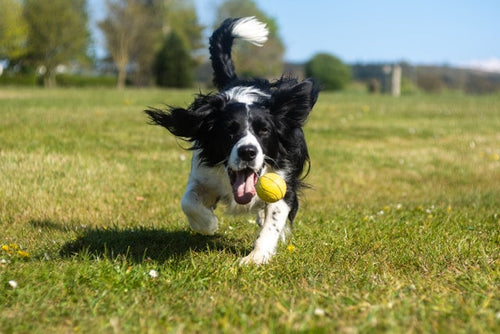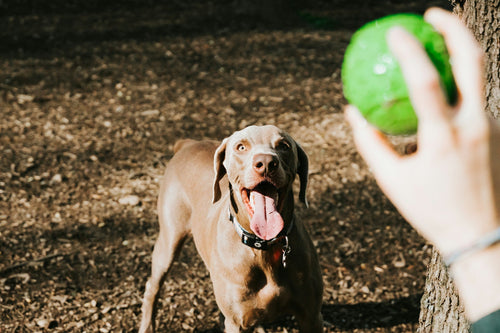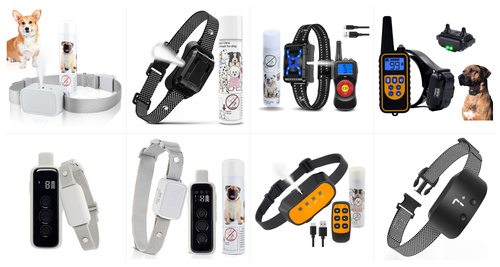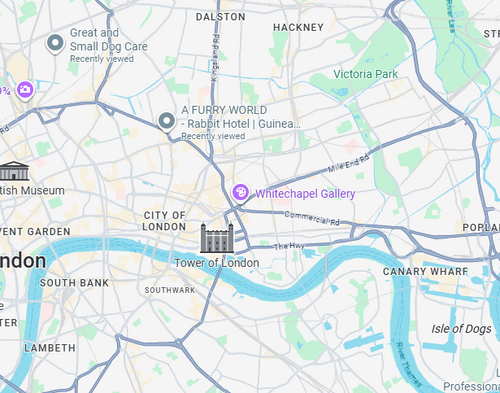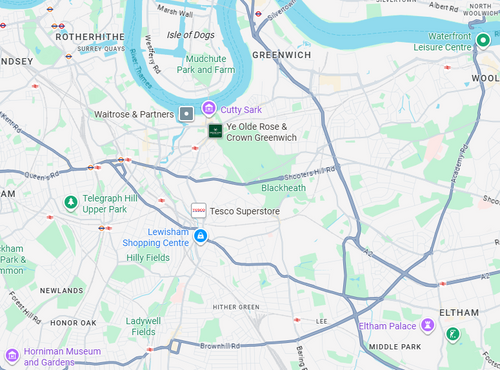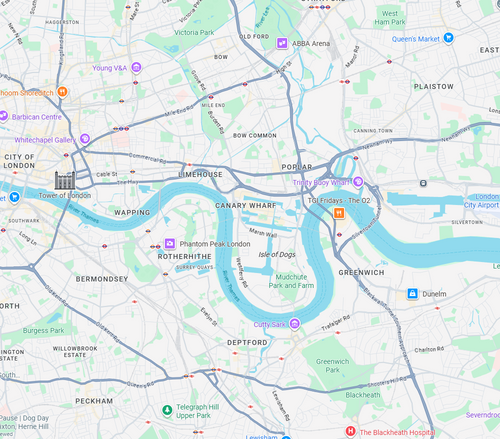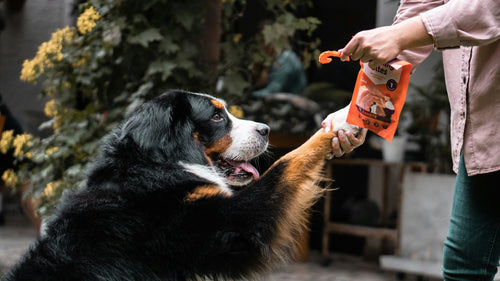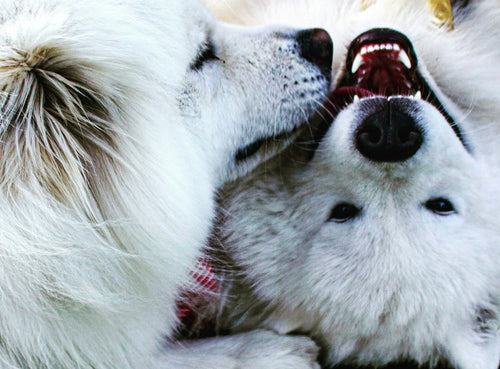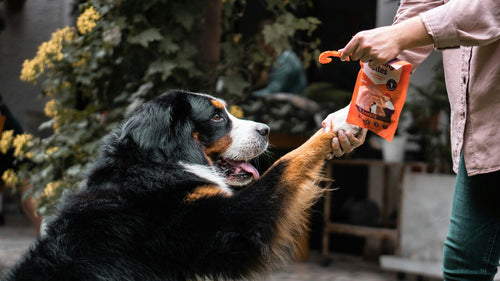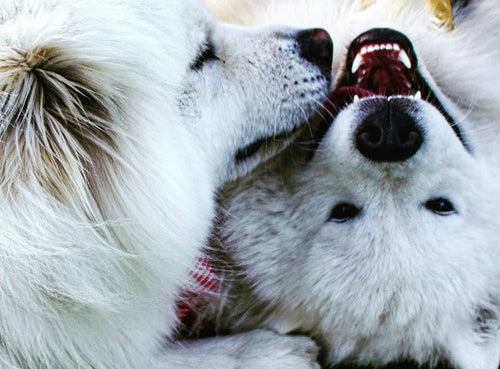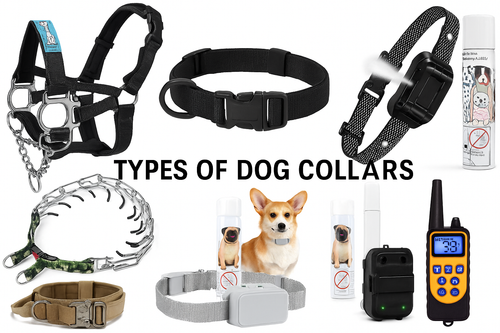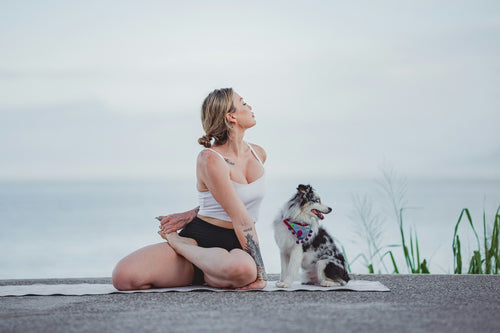If you’ve ever owned a dog, you’ve probably noticed how often they give themselves a good shake. Whether it’s after a bath, a nap, or sometimes seemingly for no reason, you may wonder: why do dogs shake their bodies?
While it might look random or even funny, body shaking is actually an important behaviour for dogs. It can signal relaxation, communication, or sometimes an underlying health concern. In this article, we’ll break down the 10 most common reasons dogs shake their bodies, when it’s normal, and when you should pay closer attention.
1. To Dry Off After Getting Wet

The most obvious reason dogs shake their bodies is to get rid of excess water. Dogs are built with an incredible ability to shake off around 70% of the water from their fur in just seconds. This natural behaviour helps them stay dry, warm, and comfortable.
-
When it’s normal: After a bath, swim, or rainy walk.
-
What to do: Let them shake it out, then towel dry to help avoid that “wet dog smell.”
2. After Sleeping or Resting
You’ve probably noticed your dog wakes up from a nap and immediately shakes their whole body. This is their way of resetting their muscles and circulation. It’s similar to how humans stretch and yawn after resting.
-
When it’s normal: Every time they get up from lying down.
-
What to do: Nothing—it’s part of their natural “wake up” routine.
3. To Relieve Stress or Tension

Dogs also shake their bodies as a form of emotional release. After a stressful situation—like a vet visit, a loud noise, or meeting another dog—they often shake to “shake off” the stress.
-
When it’s normal: After a mildly stressful or exciting encounter.
-
What to do: Support them with calm reassurance. For ongoing stress, consider calming aids like Calmshops Calming Dog Treats.
4. Play and Excitement

Sometimes body shakes happen in the middle of playtime. Your dog may pause, shake, and then jump back into action. This is a way of releasing pent-up energy and resetting their emotions during play. Try the best ball throwers for dogs for your play.
-
When it’s normal: During or after active play sessions.
-
What to do: Let them enjoy it—it’s a healthy way to regulate excitement.
5. To Get Comfortable
Dogs shake their bodies to readjust their fur, skin, and muscles. This can happen when they change positions, adjust their harness, or feel a tickle on their skin.
-
When it’s normal: Occasionally throughout the day.
-
What to do: Make sure their harness or collar fits properly. If they shake excessively, check for skin irritations.
6. Communication with Other Dogs
Body shaking can also act as a social signal. Dogs may shake after meeting another dog to show they’re relaxed and non-threatening. It’s a way of saying, “I’m calm, everything’s fine.”
-
When it’s normal: After play or introductions.
-
What to do: Observe—it’s usually a positive sign of canine communication.
7. Skin Irritation or Allergies
Excessive body shaking can sometimes point to irritation. Dogs may shake if they’re itchy due to allergies, fleas, ticks, or dry skin.
-
When it’s normal: Never—if shaking is frequent and intense, it could mean discomfort.
-
What to do: Check for fleas, ticks, or redness. Consult your vet if it continues.
8. Ear Problems

A very common cause of shaking is ear irritation. If your dog is constantly shaking their head and body, it may be due to ear infections, mites, or wax build-up.
-
When it’s normal: Shaking right after swimming (to remove water).
-
What to do: If it’s frequent, check inside the ears. Redness, odour, or scratching means it’s time for a vet visit.
9. Pain or Discomfort
Sometimes dogs shake their bodies when they’re in pain, especially after sudden movement or injury. It may look like a full-body tremble or frequent readjustment.
-
When it’s normal: Rarely.
-
What to do: Watch for limping, whining, or changes in behaviour. If shaking is paired with signs of pain, consult your vet.
10. Medical Conditions
In rarer cases, repeated shaking can be linked to more serious medical issues, such as neurological disorders, poisoning, or seizures. Dogs may shake their bodies as part of a larger health problem.
-
When it’s normal: Never—seek professional advice.
-
What to do: If your dog’s shaking seems uncontrollable or is paired with fainting, lethargy, or vomiting, call your vet immediately.
Why Do Dogs Shake Their Bodies After a Bath?

This deserves a section of its own because so many owners ask! Dogs instinctively shake to remove water from their coat. Interestingly, studies show that dogs can shake at a speed of 4–6 times per second, which makes the process incredibly efficient.
Tip: Always towel-dry your dog after a bath and brush their fur to prevent matting.
Why Do Dogs Shake Their Bodies After You Hug Them?
Sometimes, after a cuddle or petting session, dogs will give a big shake. This doesn’t mean they don’t like affection—it’s simply a reset signal. They’re realigning their fur and releasing extra energy.
What to Do If Your Dog Shakes Excessively
Occasional body shakes are completely normal. But if you find yourself constantly asking, “Why does my dog shake their body so much?”, here are steps to take:
-
Check for obvious triggers – Wet fur, playtime, or naps.
-
Inspect ears and skin – Look for redness, discharge, or fleas.
-
Monitor timing – Is it after stress, exercise, or random moments?
-
Track other symptoms – Lethargy, vomiting, or pain signals a problem.
-
Consult your vet – If shaking is frequent, intense, or unexplained.
Training and Stress Relief with Calmshops Products
If your dog shakes due to stress or anxiety, training and calming aids can help:
-
Dog clicker – Reinforce calm behaviour with positive training.
-
No-shock vibrating collars – Useful for training without causing fear.
-
Calming treats – Botanicals and natural ingredients help dogs relax.
Explore these options at Calmshops to make life easier for both you and your furry friend.
Final Thoughts: Why Do Dogs Shake Their Bodies?
Dogs shake their bodies for many reasons—from drying off after a bath to releasing stress or signalling relaxation. In most cases, it’s perfectly normal and part of being a dog. However, if shaking becomes excessive, frequent, or is paired with signs of illness, it’s important to seek veterinary advice.
So next time you ask yourself, “Why do dogs shake their bodies?”, remember that sometimes it’s just your dog being a dog—but sometimes, it’s their way of asking for a little extra help.



